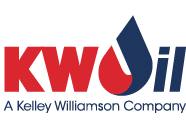Your Guide to Saving Energy on the Road

It’s tough to keep your commercial fleet running smoothly. You’re constantly faced with new challenges from increasingly complicated regulations, tighter margins, advancements in technology, and your competition. With all that you have on your plate, improving energy efficiency may not be a priority. It seems like just one more thing to add to your list; but focusing on saving energy could impact your business significantly.
We partner with Exxon Mobil to bring you high-performance lubricant products, along with solutions for improving your operation. In this post, you will find helpful tips and information for increasing efficiency and reducing costs. Visit Mobil Delvac for more examples and advice to enhance performance.
Increase Energy Efficiency
There are many ways to increase energy efficiency. Start small! Focus on fuel efficiency or look for ways to streamline day-to-day operations in the office. Then, take it a step further by investing in the latest energy-saving technologies for the road. Soon you’ll be able to take a step back and see how a holistic approach to energy efficiency can positively impact your bottom line.
Save Fuel with Synthetic Lubricants
Help to reduce fuel costs and consumption by switching from mineral engine oil to a low viscosity, full synthetic alternative. High-performance lubricants provide excellent protection for your operation, whether you haul trailers in summer heat or transport supplies in bitter cold. Making the switch can significantly improve fuel economy* on the road and protect against wear and tear – saving you time and money.
*Product-specific example: Mobil Delvac 1™ LE 5W-30 full synthetic engine oil: A fuel economy evaluation was conducted using two Volvo FM440 Euro V trucks, loaded to 75 percent payload (about 70,550 lbs.). Testing was conducted on track at the Millbrook Proving Ground, Ltd. in the United Kingdom. Statistically significant fuel economy benefits were observed in the Volvo trucks, when comparing Mobil Delvac 1 LE 5W-30 to a mineral 15W-40 engine oil, with an average fuel economy gain of 1.8 percent for highway driving conditions. Corrections were applied when changes in test environment had a statistically significant impact on fuel economy. Fuel economy improvements are dependent on vehicle/equipment type, outside temperature, driving conditions and your current fluid viscosities. [Provided by Mobil Delvac]
Train Fleet Drivers to be Conscious of Fuel Economy
Use these four driver training tips from Mobil Delvac to help increase the efficiency of your commercial fleet:
-
- Gear Changes
Train your drivers to operate in as high a gear as possible and to skip gears when practical. - Brakes
Braking wastes energy, so anticipate potential hazards and take preventive measures early to reduce the number of times and level of pressure applied to the brakes. - Finding the “sweet spot”
Drivers should find the speed at which the truck’s fuel economy is at its optimum rate and use it wherever possible. Find out from the truck manufacturer where the truck engine’s “sweet spot” is and help drivers identify it. This is where the engine’s rotational speed is at its most efficient. Obtain information on vehicle performance characteristics from dealers or suppliers, ensure that drivers know the performance characteristics of their vehicles and mark the most economical range on rev counters using green tape. - Build on momentum
Drivers should use the momentum a truck gathers on flat terrains to get over uneven or hilly areas more economically. It pays to plan ahead, especially when entering road features and roundabouts. Keep brake applications to a minimum and take advantage of the topography to keep moving with the least energy possible.
- Gear Changes


